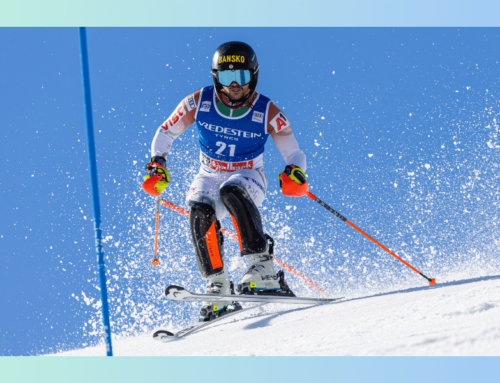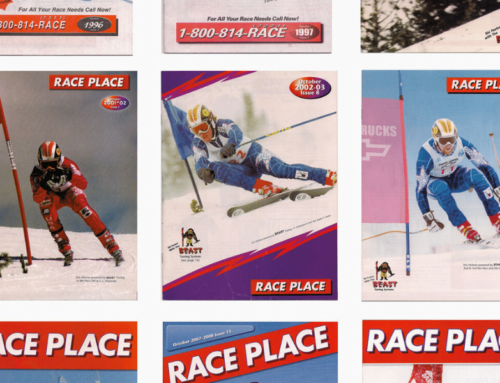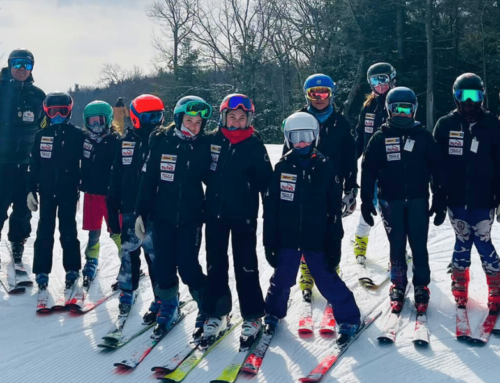Unlock Your Potential: The ‘Magic Pill’ for Summer Ski Training
Imagine having a magic pill that could enhance your summer ski training and help you tackle high elevations, intense sun, and grueling multi-activity days with more energy and benefit. Summer ski training is no walk in the park, with its unpredictable temperatures and continuous training demands. If such a pill existed, would you take it? Let’s explore the secrets to make this “magic pill” a reality for your training regimen.
Ski Training Fatigue: Central and Metabolic
Ski training involves strenuous activity that results in two types of fatigue: central and metabolic. This fatigue means your legs get tired, and the energy to fuel them also takes a hit. You end up with depleted glycogen reserves, muscle damage, and reduced antioxidant protection. It’s not a pretty picture.
Hydration: The Key to Reducing Muscle Damage
First, the summer skiing athlete needs to drink. When you drink water, you experience significantly less muscle damage. Add carbohydrates and protein to your water and benefit even more significantly. The trick is to drink often due to the gastric emptying rate. Drink 5 ounces of water for optimal hydration every 20-30 minutes. Enhance your water with 20 grams of carbohydrates, 5 grams of protein, 115 mg of sodium, and 20 mg of potassium. This combination reduces muscle damage and sustains your energy levels.
Nutrition: Fueling Your Training for Optimal Performance
Secondly, you need to eat during training. Eating during training reduces DNFs (Did Not Finish) and increases the number of gates you ski. Eating is also essential for continuous days of training. The training utilizes muscle glycogen. It can reduce glycogen stores by as much as 50% by the end of the day. Dinner and sleep partially rejuvenate these stores but not quite to their pre-camp level. By the third day of training, significant fatigue sets in as glycogen stores drop, leaving you essentially “out of gas.”
Include easily digestible carbohydrates and proteins in your food. Good options are energy bars, fruits like bananas and apples, nuts, and lean proteins such as chicken or turkey slices. Incorporate complex carbohydrates like whole grain bread or oatmeal to maintain energy levels throughout the day.
Sleep: The Hidden Performance Booster
Learning new skills requires novel motor functions. Without adequate sleep, your central nervous system cannot reorganize as needed. You go through the motions but do not make any fundamental changes. Deep sleep gets the bonus of human growth hormone (HGH) release. HGH is so valuable to the athlete that when taken as a supplement, it is prohibited by the World Anti-Doping Agency (WADA). HGH becomes a permissible bonus when acquired while sleeping. This bump to performance and regeneration proves essential during summer training. While sleeping, your body repairs tissue, enhances mental concentration and regulates mood.
Notably, Mikaela Shiffrin, one of the most successful skiers in the world, emphasizes the importance of sleep in her training regimen. She attributes much of her recovery ability to getting sufficient high-quality sleep, demonstrating its importance for peak performance.
Conclusion
In the demanding world of summer ski training, hydration, nutrition, and sleep form the trifecta of your “magic pill” for peak performance. Drinking 5 ounces of water every 20-30 minutes, enriched with carbohydrates, protein, sodium, and potassium, significantly reduces muscle damage and sustains your energy levels. Coupled with strategic eating during training and prioritizing 8-10 hours of restorative sleep, you conquer the central and metabolic fatigue that hinders progress.
Remember, the foundation of your success lies in the basics: drink, eat, and sleep well. Take these steps to heart and transform your summer training experience. Embrace these practices and see the difference they make because every skier needs a little magic in their routine.
Author
Ron Kipp is a staff member of Team Palisades Tahoe. During summer ski training, he drinks, eats, and sleeps because coaches need the same regeneration as athletes.
References
Davis SL, Subudhi AW, Kipp RW, Sun J, Murray DM, Askew EW, Walker JA, Johnson SC. (1999). Carbonylated protein and glutathione levels in elite male alpine ski racers during summer training. Medicine and Science in Sport and Exercise, 31(5) S335.
Reardon CL, Hainline B, Aron CM, Baron D, Baum AL, Bindra A, Derevensky JL (2019). Mental health in elite athletes: International Olympic Committee consensus statement (2019). British Journal of Sports Medicine, 53(11), 667–699.
Seifert JG, Kipp RW, Amann AM, Gazal, O. (2005). Muscle damage, hydration and energy supplementation during recreational alpine skiing. European College of Sport Science, Belgrade, Serbia-Montenegro.
Seifert JG, Kipp RW, Bacharach DW. (2012). The effects of a carbohydrate-protein gel supplement on alpine slalom ski performance. Journal of Sports Science and Medicine, 11, 537-541.
Subudhi AW, Davis SL, Kipp RW, Askew EW. (2001) Antioxidant status and oxidative stress in elite alpine ski racers. International Journal of Sports Nutrition and Exercise Metabolism, 11, 32-41.














